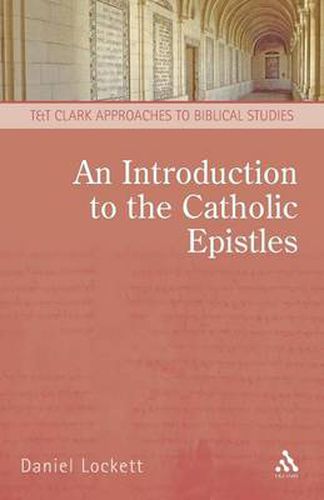Readings Newsletter
Become a Readings Member to make your shopping experience even easier.
Sign in or sign up for free!
You’re not far away from qualifying for FREE standard shipping within Australia
You’ve qualified for FREE standard shipping within Australia
The cart is loading…






This book introduces the Epistles and discusses the different interpretive approaches which have been used to gain a clearer understanding of them. An introductory chapter defines the Epistles and describes the history of their canonization, following chapters are devoted to each of the texts with each chapter including: 1) historical-cultural background; 2) the social-scientific context; 3) social-rhetorical purposes; 4) narrative discourse; 5) postcolonial and 6) feminist insights; and finally 7) theological perspectives. At the end of each chapter there are suggestions for further reading and a list of reflection questions. Several chapters include a section or two considering a particular interpretive issue especially relevant to the particular text. After taking up each text, Lockett considers again whether the Epistles are a unified whole or to be heard as individual voices. Here the book interacts with some of the ideas of Rob Wall and David Nienhuis regarding the various thematic/theological connections running through the texts. A final chapter takes up the relationship between the Pauline Epistles and the Catholic Epistles within the New Testament.
$9.00 standard shipping within Australia
FREE standard shipping within Australia for orders over $100.00
Express & International shipping calculated at checkout
Stock availability can be subject to change without notice. We recommend calling the shop or contacting our online team to check availability of low stock items. Please see our Shopping Online page for more details.
This book introduces the Epistles and discusses the different interpretive approaches which have been used to gain a clearer understanding of them. An introductory chapter defines the Epistles and describes the history of their canonization, following chapters are devoted to each of the texts with each chapter including: 1) historical-cultural background; 2) the social-scientific context; 3) social-rhetorical purposes; 4) narrative discourse; 5) postcolonial and 6) feminist insights; and finally 7) theological perspectives. At the end of each chapter there are suggestions for further reading and a list of reflection questions. Several chapters include a section or two considering a particular interpretive issue especially relevant to the particular text. After taking up each text, Lockett considers again whether the Epistles are a unified whole or to be heard as individual voices. Here the book interacts with some of the ideas of Rob Wall and David Nienhuis regarding the various thematic/theological connections running through the texts. A final chapter takes up the relationship between the Pauline Epistles and the Catholic Epistles within the New Testament.